The perverse cycle of a warming climate and the rise of air conditioners
The Dutch are increasingly opting for power-hungry air conditioners to keep their heads and bodies cool. There is an alternative, says this Eindhoven researcher.
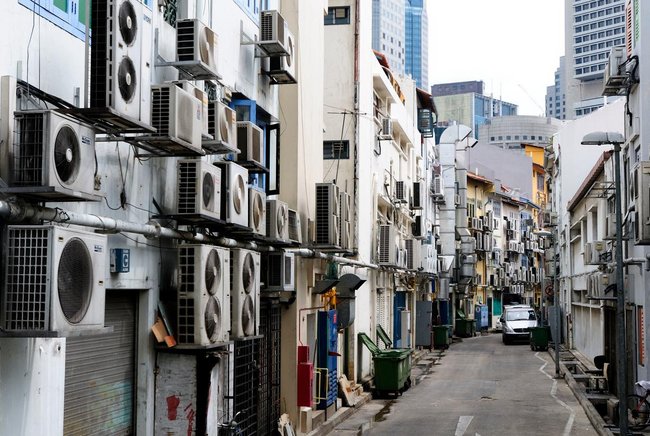
"Mad dogs and Englishmen go out in the midday sun," Noel Coward famously sang in 1931, mocking British colonials who ventured out into the scorching midday sun at the hottest time of day. "The Dutch also still think the sun is their friend," says researcher Lenneke Kuijer. During the August 2020 heat wave she investigated how Dutch households deal with hot weather. "It's time for change while it's still possible," she believes. "Less air conditioning, more outdoor shading and a different way of dealing with heat."
The number of tropical days in the Netherlands is increasing rapidly. Only a hundred years ago, the temperature rose above 30 degrees Celsius on average about one day a year. Now it is already an average of five times a year, with a peak of 8 days in 2020.
And the problem will only get worse in the coming decades, not only in the Netherlands, but also elsewhere in Europe. According to the latest models, heat waves (five consecutive days above 25 degrees Celsius, including three above 30) will not only become more frequent in the second half of this century, but also hotter and longer lasting. The cause, it is now generally accepted, is the greenhouse effect.

Air conditioners: easy and fast
What to do? You can of course try to prevent the greenhouse effect (or mitigate it, as attempted in the Paris climate accords), but many people are not waiting for that. "They are already choosing the easiest and fastest solution: air conditioning," says Lenneke Kuijer, researcher at the Future Everyday Group at the Faculty of Industrial Design. Through interviews, she investigated into how Dutch households deal with hot weather.
"As a society, we're in danger of becoming more and more dependent on mechanical cooling to keep our heads and bodies cool, which is not only inefficient, but also unhealthy. Look at what happened last year, during the August heat wave here in the Netherlands. Essent, one of our main energy providers, saw energy demand increase by 30 percent then.”
"This is something that concerns me greatly. The increasing demand for air conditioners and the increasing energy consumption of these devices are jeopardizing our goal of reducing CO2 emissions. Not to mention the fact that the coolants in many air conditioners act like a super greenhouse gas. The irony is that in our effort to stay cool, we are actually making the earth - and our immediate environment - even hotter."
Research
Kuijer interviewed 21 households, with a total of 60 residents between the ages of 0 and 70, both renters and homeowners. They lived in houses built between 1910 and 2019. According to her, the interviews and the diaries provide a representative picture of how the Dutch deal with heat and offer good leads for further research into healthy and energy-efficient summer comfort in Dutch households.
The interviews show that people already often suffer from heat, as illustrated in Figure 1. During the heat wave in August 2020, the temperature experienced by almost all respondents was well above their preferred temperature (especially during activities such as sleeping and working) and partly also above the recently introduced Dutch guideline for preventing overheating in homes, which starts at 27 degrees.
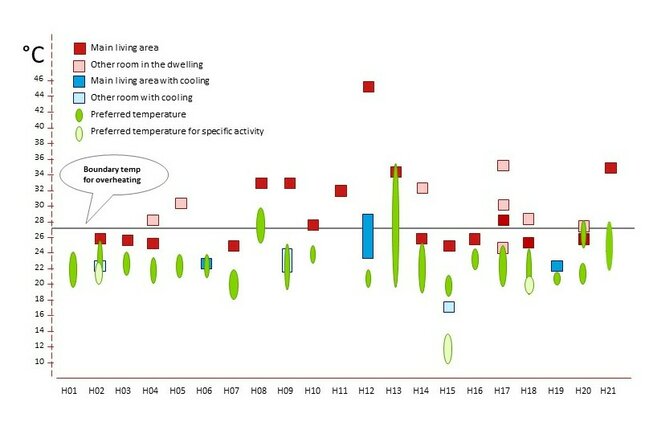
"My research clearly shows two things," says Kuijer. "One, Dutch homes are not built for heat, and two, Dutch people are not well prepared to cope with heat." By the latter, the researcher refers to the relationship many Dutch people have traditionally had with the sun and the outdoors. "Both are seen as friends, and warmly welcomed into the home".
Nothing wrong with that, you might say, but this attitude is working less well now that we are experiencing more and more extreme heat. "When it gets hot, we tend to open the windows, which of course brings in the heat. Also, people find sweat, which after all helps to cool the body, annoying and gross. Furthermore, we still eat and work at times when it is too hot, and we do not adjust our clothing enough, especially in the work situation."
heat tolerance
Kuijer sees roughly three sustainable ways to reduce the need for cooling: outdoor shading, night ventilation and acclimatization. One problem is that it is precisely these solutions that must compete with the less sustainable air conditioners. They are often cheaper than blinds and provide immediate results. "But what's worse, air conditioners make it harder for people to get used to heat. So the dependence on cooling is increasing."
"Cooling inhibits the process of acclimatization because the temperature of the air conditioner does not change with the outside temperature. We know from physiological research that people can tolerate up to one degree higher temperatures every day under certain conditions. So your heat tolerance increases naturally, which also increases your freedom of movement in hot weather. Cooling gets in the way of that process".
Incidentally, Kuijer is not entirely against mechanical cooling. "It will become increasingly necessary to keep homes livable for certain vulnerable groups. But it should never be the only solution."
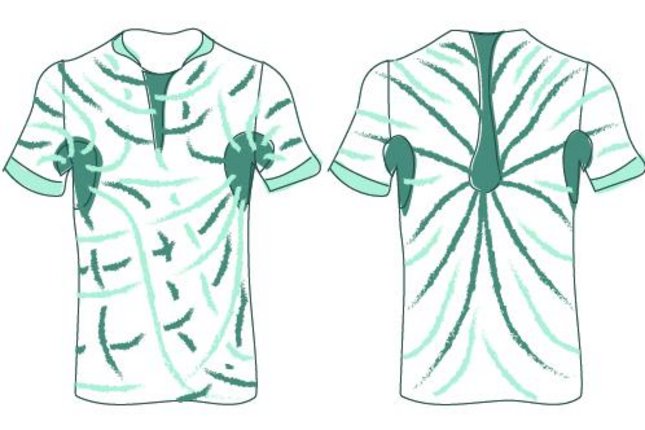
Wake-up call
In her report, Kuijer suggests a number of promising solutions that could contribute to energy-efficient, healthy summer comfort:
- - Consider subsidizing blinds so they can better compete with air conditioners.
- - Provide cooling systems in which cooling and ventilation work together intelligently and the target temperature rises gradually to promote acclimatization;
- - Give extra attention to lower-income households in urban apartments. This group suffers disproportionately from the harmful effects of warming.
- - And finally: Commit to behavioral and cultural change. A healthy and efficient indoor climate needs the cooperation of residents, and a different approach to the body, the sun and outdoor air.
"The latter is perhaps the most important, but also the most difficult," says the researcher. "In that respect, my report is a wake-up call."
Provocations
The researcher emphasizes that her research is not yet complete. The next phase of the VENI project (funded by the Dutch Research Council) is to think about provocative design concepts that look beyond cooling when it comes to summer comfort. "For example, one of our provocations is a 'sweatshirt' that automatically distributes sweat throughout the body so that you cool down better."
In the third phase, we want to further develop the suggested solutions into practical and realistic recommendations, with which housing associations, governments, the refrigeration and ventilation industry and private individuals can immediately get to work."
Lenneke Kuijer's research project began in 2019 and will continue until 2023. More information can be found on this page. The entire report can be read here.
Media contact
More on Sustainability
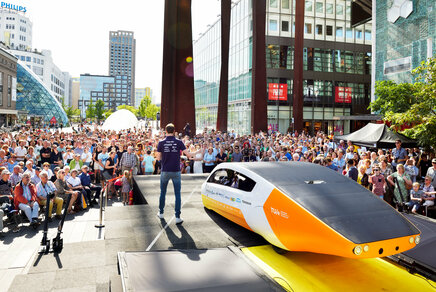

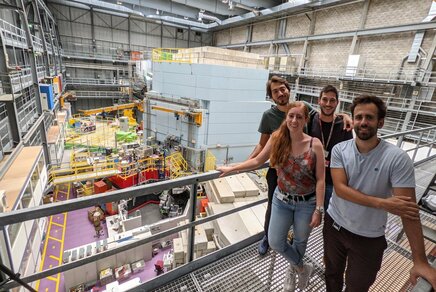
Latest news


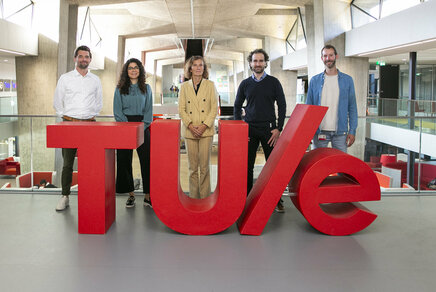
![[Translate to Engels:] Twee mobiele airco’s in een winkel in Utrecht (beeld: Jasper Vis @Vision23) Photo: two mobile airconditioning units in a shop in Utrecht (image: Jasper Vis @Vision23)](https://assets.w3.tue.nl/w/fileadmin/_processed_/4/1/csm_Jasper%20Vis%20%40Vision23_bfb5f60ba8.jpg)